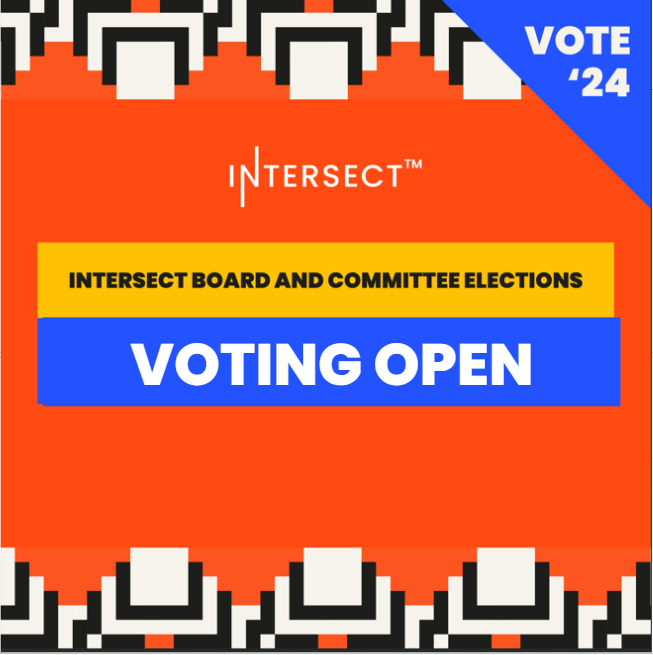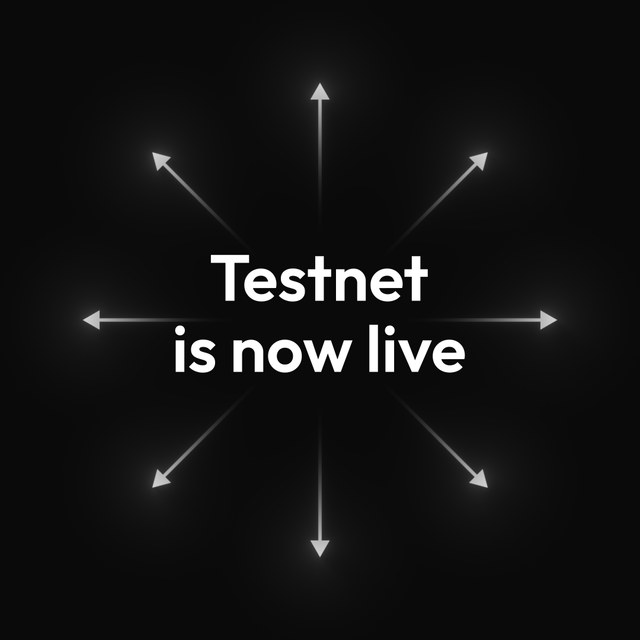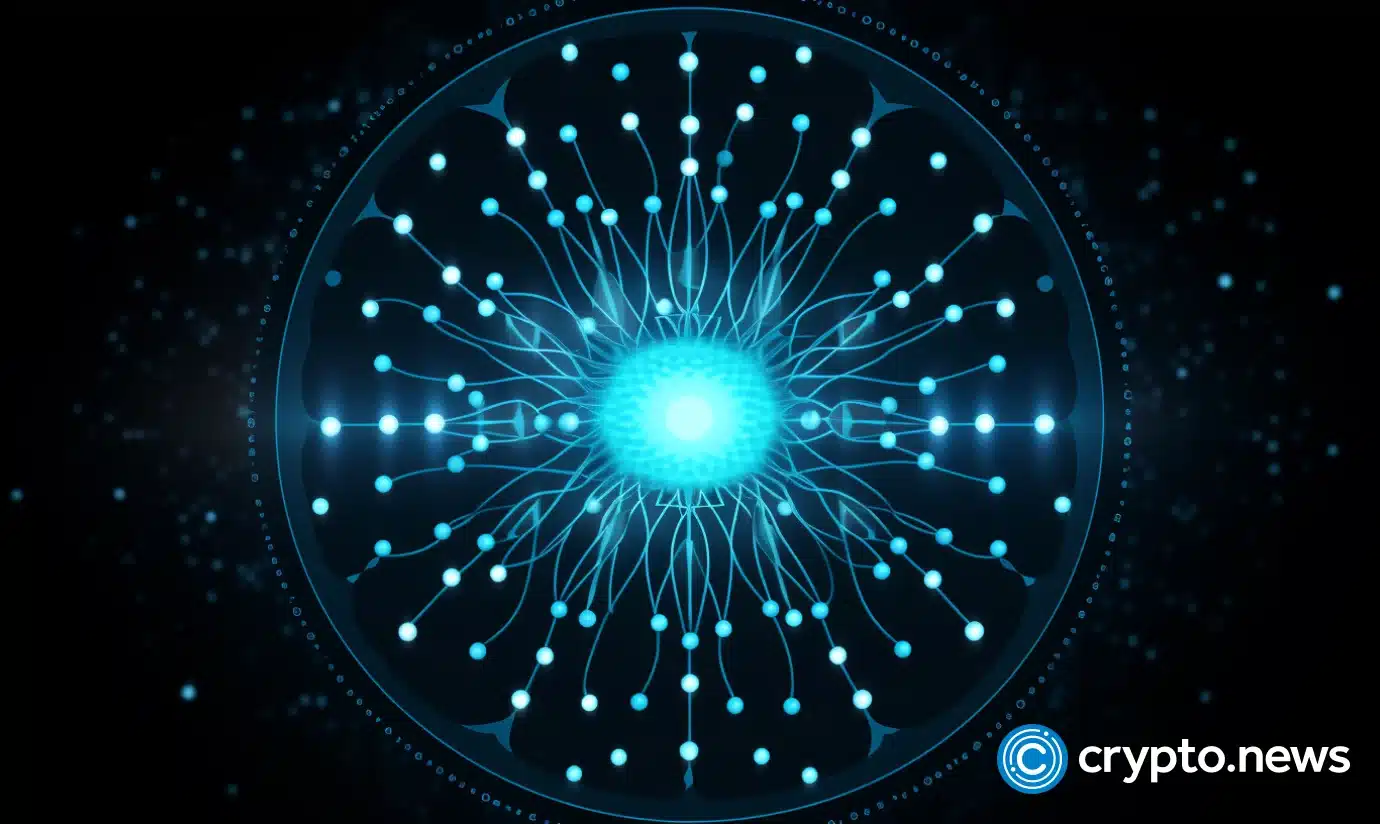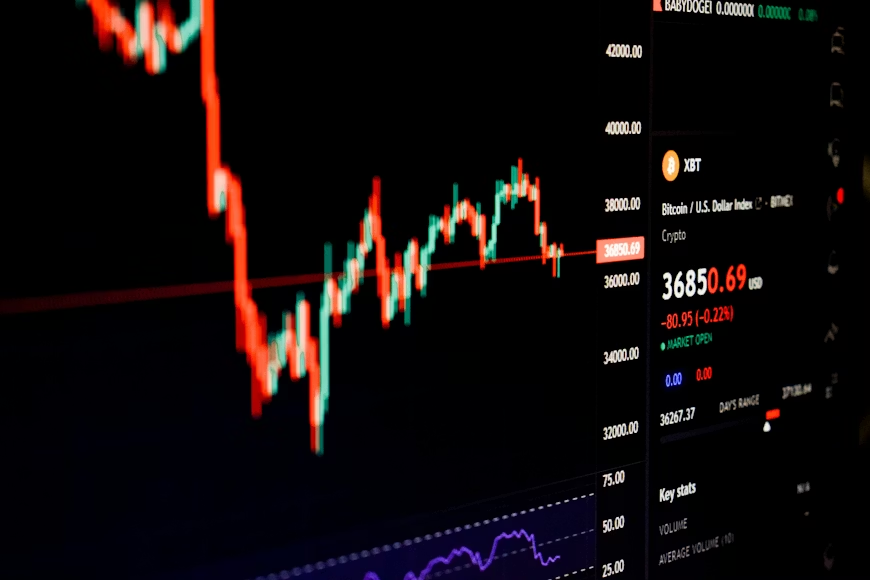Can ADA be a store of value?
If any cryptocurrency is to hold value, it is smart to ask what that value is, what the value is derived from, and whether that value can be sustained over the long term. To answer these questions, we look...

If any cryptocurrency is to hold value, it is smart to ask what that value is, what the value is derived from, and whether that value can be sustained over the long term. To answer these questions, we look for analogies in the world we know. We try to compare cryptocurrencies to commodities or to stocks. However, both of these analogies are very misleading and do not help us to answer correctly. Can ADA coins be a store of value? We will try to answer that.
TLDR:
- You don't have to pay miners to hold gold. Cryptocurrencies depend on the existence of a network, so someone has to pay for security forever.
- The lower the cost of maintaining the network, the easier it is to survive economically in the long term. Is a network with lower operating costs a better store of value?
- When BTC coins are tokenized on Cardano, bitcoiners might be interested in holding ADA.
- The value of the coins will reflect the quality and value of the network. More useful networks will be more valuable.
- The confusion arises because IT professionals see blockchain as a technology while economists see it as money.
Cryptocurrencies are neither commodities nor stocks
Imagine having to pay miners regularly for the rest of your life for keeping a bar of gold in your vault at home. Miners may have mined gold 30 years ago, but you need the mining company to thrive and keep mining gold. That's not how gold works, is it? People often compare Bitcoin to gold without realizing the very fundamental difference between a commodity and a cryptocurrency. The existence of bitcoins will probably forever depend on PoW mining and someone has to pay for it. Does it have to be you if you happen to hold bitcoins in your wallet? I'm not going to answer that. But if miners don't prosper, the Bitcoin network may not be secure enough, which directly puts your assets at risk. So either you pay up or you sell the coins instead.
Gold is not dependent on mining companies. If the companies go bankrupt, gold may have a higher market value because there will be a shortage. Gold will never lose its value because it is independent of its environment and its physical scarcity is guaranteed by nature.
Bitcoin and all other blockchain networks, including Cardano, are technologies dependent on the existence of the internet, electricity, and other things. The value of the coins will forever be dependent on the existence of the networks, i.e. the economic incentive to keep the network running. Someone has to pay for the operation of the network in order for the coins to retain their value.
Bitcoin is digitally scarce. Miners extract coins by consuming energy and are rewarded for it. Miners sell the bitcoins to pay for their costs. This principle is similar to gold. The problem is that over 90% of bitcoins are mined, so it is slowly time to ask who will pay the miners.
The existence of ADA coins is dependent on the Cardano network. ADA coins are also digitally scarce, so one day almost all of them will be in circulation and the network will have to rely on other revenue streams to reward ADA holders.
Getting rewards for staking is sometimes likened to paying dividends. However, this analogy is not accurate, as by holding ADA coins you are actively participating in the security and decentralization of the Cardano network. It is valuable to the Cardano network that you and others hold ADA coins. Investors holding Tesla stock are not improving car production in any way. Tesla doesn't care how many investors there are. The quality of the Cardano network increases with the number of ADA holders, so there is a direct dependency between the network and the users. There is not such a close relationship between stocks and companies.
Long-term store of value
What characteristics should a cryptocurrency have to be the best store of value?
You don't have to pay anyone to have emails in your inbox or money in your bank account. If the emails are valuable to you, you make a copy of them. If you're worried about the bank going bust, you can keep the physical money with you, or in a vault. You don't have to worry at all about how the company running your email or the bank is doing.
If you want to use cryptocurrencies as a store of value, you have to worry about how the network is doing, how decentralized it is, how secure it is, and whether the team is able to innovate and fix bugs. Blockchain is first and foremost a sophisticated technology that someone has to maintain.
Bitcoin uses PoW consensus, so maintaining the network is very expensive. Unless the network gets enough revenue from fees, by changes in monetary policy, or something else happens, one way to keep the network running is to pay miners forever. Can the coin holders be expected to behave that way? From our point of view, it is unlikely. People would rather go back to gold than regularly subsidize PoW miners.
Cardano uses PoS consensus, so network maintenance costs are 99.9% lower. What does this imply? If the cost of storing value is lower, ADA is a better store of value than BTC. Is it fair to draw that conclusion? Let's consider some opposing arguments.
In the case of Bitcoin, it is said that it took a lot of energy to mine the coins, so that gives some value to the coins. The logic of some economists is that the cost of creating the thing determines the final value (market value). From our perspective, this doesn't apply to cryptocurrencies because, as we explained, the coins will only exist if the network exists. Coins themselves are not something for which ultimate existence is guaranteed. It is hard to consider coins as a final product, as they are essentially just numbers existing on the blockchain. Without adding new blocks, there is no way to send the value to someone else.
It can be said that creating ADA coins was cheaper because PoS consumes less energy. On the other hand, in the long run, the existence of ADA coins is better secured. ADA coins can be around for 50 years and you don't have to worry about the security of the Cardano network.
Another argument could be that Bitcoin has been around longer, so PoW is more time-tested. Moreover, PoW is considered more secure than PoS. Within the scope of this article, there is no room to compare the security of PoW with PoS. Time may give us the best answer. As long as Cardano is here in another 5 years, you don't need to worry about PoS.
If we look at the problem from a purely technological perspective, the lower cost of maintaining the network is a clear advantage. It makes no sense for the existence of coins to be threatened by a declining security budget. From the perspective of securing existence in the world of the Internet, a store of value that is more economically sustainable in the long term is preferable.
It is important to see the link between network security and long-term economic sustainability. For PoW networks, if the cost of coins drops by 80%, the cost of attack drops similarly. After each halving, security drops by 50%. This may not happen immediately but over a longer time horizon. Building network security on the infinitely increasing value of coins is not a smart design for a store of value. In nature, the more efficient a process is, the more likely it is to survive. This also applies to the comparison between PoW and PoS. Higher efficiency wins.
Adoption is always decided by the people
Most people on the planet will not question gold's status as a store of value. Yet, paradoxically, most of the population does not own it. Where do cryptocurrencies stand?
Bitcoin is considered a store of value mainly by the community. Institutional investors don't always believe this narrative, but if they are buying coins, they certainly have a reason. If we were to find out what percentage of people do not believe Bitcoin is a store of value, the largest cryptocurrency would end up significantly worse than gold. How would Cardano fare? Certainly not very well.
Bitcoin has a huge lead over Cardano in terms of the store of value narrative. However, seen from the other side, the majority of the population does not trust Bitcoin and cryptocurrencies in general very much in terms of their potential to become a store of value or a medium of exchange. This is the reality.
If the Bitcoin community believes a narrative, why shouldn't any other community believe a similar or the same narrative? As long as the Cardano community considers ADA coins to be a store of value, within the community it will be valid. The size of the community affects the strength of the narrative. If someone considers BTC to be a store of value, why wouldn't that be true of ADA? In both cases, they are just digital records in a different type of blockchain. Personally, I consider both BTC and ADA coins to be stores of value with different parameters and different adoption rates.
Sometimes it is necessary to get out of the cryptocurrency bubble. It makes no sense to look for an exact label for specific blockchain projects or coins. A lot of people have their own individual opinion on this, and even lawmakers have not yet found a consensus. However, we should definitely not follow the opinions of legislators. Unless cryptocurrencies are used for mass payment, they will certainly not be called currency or money by the mass population. If the value continues to be volatile, it will hardly be a store of value for them.
At this stage of cryptocurrency adoption, it is not yet at all certain how the mass population will perceive cryptocurrencies. The store of value narrative may or may not take hold in the case of Bitcoin. If it does, there is no reason to think that other cryptocurrencies will not be perceived in the same way. The same will apply to payment options. If bitcoins were used to pay in shops and on the internet, other cryptocurrencies would also be used for the same purpose. The size of the community will determine whether a given cryptocurrency is accepted as a payment option. Most of the regulations are not exclusive to Bitcoin, but to cryptocurrencies in general.
It is perfectly fine for different communities to try to push a narrative. But until the majority of the population believes it, it will still be an experiment, not a done deal.
Where does the value of cryptocurrencies come from?
Gold is valuable because it can be used in various industries, it is physically scarce and most people believe it is a store of value. Cryptocurrencies only have digital scarcity at the moment. What they don't have are people's faith and usefulness. More specifically, many more people need to start using specific useful features. We are at a stage of wider acceptance, which may or may not come. We believe that wider adoption is more likely to happen, we just don't know when.
Blockchain network is a technology, so its value can be derived from the utility associated with the internet. The value of the coins can be a reflection of the networks' ability to offer useful functions to people and the size of their network effect. A global transactional network that is accessible to all without having to ask for permission and is resistant to censorship is certainly a valuable thing. Is that enough, or should the networks know more?
There are two approaches. The Bitcoin community thinks there is no reason for the blockchain to do more than send unconditional transactions on the scale of 7 transactions per second. They do not think it is necessary to extend the capabilities of the protocol at the first layer, as they believe that the other layers are sufficient for innovation. In addition, any additional functionality such as sending assets conditionally or the ability to issue tokens is fraud related and no one will take advantage of these capabilities.
Cardano is a smart contract platform and the community believes that the more Cardano can do, the higher its adoption will be. Adoption will affect the size of the network effect, which will naturally affect the value of the coins. Smart contracts, tokenization, decentralized identity, better scalability, and other capabilities are considered the cornerstones of Web3.
Which community is right? From our perspective, it doesn't make sense that less useful is more valuable. If decentralization is the biggest advantage of blockchain technology, why not increase its capabilities? If it makes sense to send transactions unconditionally, why doesn't it make sense to send them conditionally? If a decentralized transaction network is to take hold, why not a global financial and social operating system? The world of the Internet values usefulness, versatility, adaptability, and innovation. This is the natural environment of the Internet.
The confusion arises because programmers (or other IT professionals) see blockchain as a technology while economists see it as money. Programmers neglect the function of money while economists don't care much about or understand technology. I dare say that the economists' voice is heard more, as most people understand money more than network protocols and smart contract programming. This may be one reason why people think that less useful, inflexible, and immutable may be better. This view neglects the technological aspect of blockchain technology and is in direct conflict with the inherent nature of the internet where technology changes and evolves every day. It is important to look at blockchain through the eyes of IT experts and economists.
A network with more utility has the potential to earn more revenue and therefore will have more to pay for its own security and decentralization. This brings us back to the topic of the long-term economic sustainability of networks. A non-useful network will not be economically sustainable and it is hard to imagine that people will maintain it just because they are holding coins. Conversely, a useful network can be used by a billion people and the network's income will be sufficient.
It is possible that if bitcoins are to survive, they will exist on other networks. Either on the Lightning Network, which breaks away from the first layer of Bitcoin or as wrapped tokens on networks like Cardano. If this were to happen, tokenized bitcoins would increase the financial and social importance of the Cardano network. In order for bitcoin holders to secure their wealth, they might be interested in holding ADA coins as well, as they would find that this decentralizes the Cardano network.
What is valuable?
When you ask people what is valuable to them in the context of cryptocurrencies, the first thing that comes to mind is the growth in the value of coins. In other words, it is speculation. The bitcoin community has a slightly different interpretation of the same answer and will tell you that bitcoin coins are a store of value for them.
In a bear market, when the value of coins is falling by tens of percent, the narrative of a store of value seems somewhat untrustworthy. Cryptocurrencies cannot maintain stable purchasing power, but their value can grow over decades. However, always when a new all-time high is reached, everyone is excited and hopeful for a better tomorrow. Nothing grows to the sky and every cryptocurrency will find its ceiling one day. Sooner or later, value growth (speculation) will cease to be a reason to hold cryptocurrencies. The reason has to change.
As we have already mentioned, the value of the coins will reflect the value of the network. The value of the network is the sum of the utility properties. If bitcoiners hold bitcoins on the Cardano network, the ADA coins will be valuable to them because it ensures the existence of bitcoins. If bitcoins served as the underlying asset for the creation of stablecoins, it would be the Cardano network on which that value will be created. If people adopt Defi's services, Cardano will provide similar services to banks, so it will be similarly valuable.
ADA coins can be seen as valuable as they will provide decentralization of the Cardano network. In addition to the ability to be a store of value, the coins will have this value. Cardano maintains a high level of decentralization for which there is no need to pay. Just holding the coins is sufficient. This is unlike Bitcoin, where miners need to be paid. Of course, holding ADA coins doesn't generate revenue for the network, so someone has to use the network and pay for it.
Cardano's ability to distribute the network's success to ADA coin holders is also valuable. The regular rewards from staking are definitely a valuable feature. If the network is used, staking will be sustainable in the long term and people have a natural need to ensure passive income. Even if the value of ADA coins would not grow and would be stable over the long term, it could still be more profitable to hold coins that generate passive income than other coins that also hold value but generate nothing. There is a difference between a store of value and a generator of value. This is not to say that the value is generated out of thin air. It's about the low cost of running a PoS network compared to a PoW network, the revenue for using the network, and the redistribution of revenue.
The big change will come when people give different answers to the question of what they value about blockchain technology. For some it will be a store of value, for others the existence of a global network available even in poor countries, Defi services, NFT, DID, etc.
Conclusion
Can ADA be a store of value in the same sense as a BTC coin? From our point of view, it certainly can. It just depends on the size of the community, adoption, and usefulness of the Cardano network. The development of the Cardano network will be entirely in the hands of the community once the Voltaire era is finished. This will be another reason why ADA coins will be valuable, as people will make their own decisions about the infrastructure they use, and that protects their wealth. The ability to vote is also very valuable. Imagine that monetary policy is not decided by one office where a few financiers sit, but by all users who hold ADA coins. If we saw that, Cardano would definitely be a very successful project.
Cryptocurrencies are neither a commodity nor a stock. It is a new phenomenon that is still in its early days and some factors are yet to manifest themselves. For example, we don't know what will happen to Bitcoin when most of the coins are mined. No one knows and we will have to wait a few years to find out. In the meantime, other cryptocurrencies like Cardano are emerging that have different characteristics, a different community, and a different mission. If Bitcoin and its coins are valuable to one group of people, surely Cardano and ADA coins are valuable to another (or the same) group of people.
It doesn't really matter if you consider ADA coins a store of value or not. The important thing is that you believe Cardano and hold the coins for some reason. You know best why you have an ADA, and you don't need a clear definition or someone else's approval to do so.
Delegate Your Voting Power to FEED DRep in Cardano Governance.
DRep ID: drep12ukt4ctzmtf6l5rj76cddgf3dvuy0lfz7uky08jfvgr9ugaapz4 | We are driven to register as a DRep by our deep dedication to the Cardano ecosystem and our aspiration to take an active role in its development, ensuring that its progress stays true to the principles of decentralization, security, and community empowerment.DELEGATE VOTING POWER!








